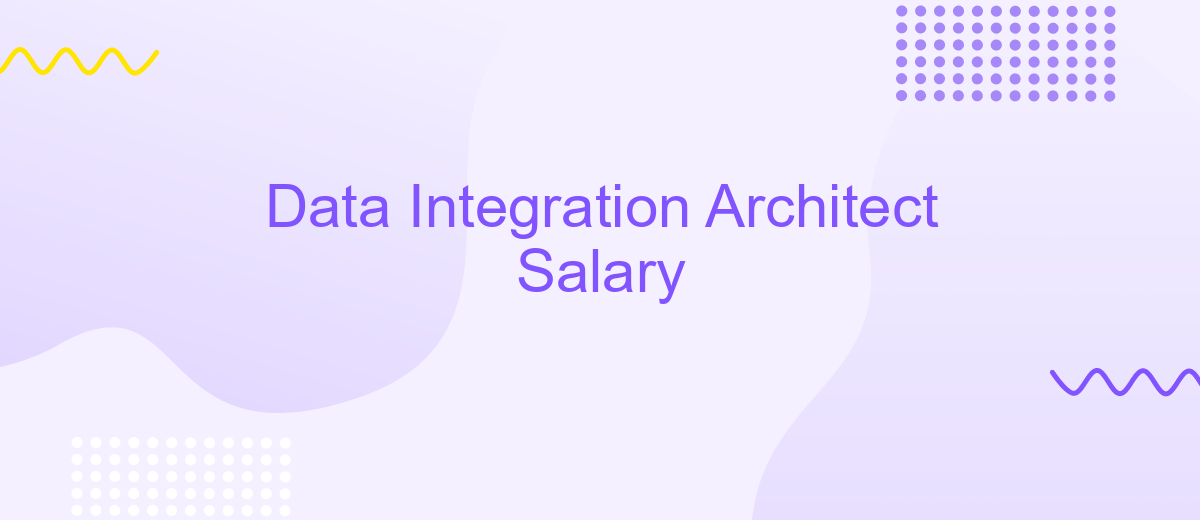Data Integration Architect Salary
In the rapidly evolving field of data management, the role of a Data Integration Architect has become increasingly vital. These professionals are responsible for seamlessly connecting various data sources, ensuring efficient data flow, and maintaining data integrity. This article delves into the salary expectations for Data Integration Architects, exploring how their expertise and experience translate into financial rewards in today's competitive job market.
Data Integration Architect Salary Overview
The salary of a Data Integration Architect can vary significantly based on factors such as location, industry, and experience. These professionals are responsible for designing and implementing integration solutions that ensure seamless data flow between various systems and applications. Their role is crucial in maintaining data integrity and enabling efficient business processes.
- Entry-level: ,000 - 0,000 per year
- Mid-level: 0,000 - 0,000 per year
- Senior-level: 0,000 - 0,000+ per year
Data Integration Architects often utilize various tools and platforms to streamline their tasks. One such service is ApiX-Drive, which offers robust solutions for automating data transfers and integrating multiple applications without extensive coding. This can significantly enhance productivity and reduce the time required to set up complex integrations, making it a valuable asset for professionals in this field.
Factors Influencing Salary

Several factors significantly influence the salary of a Data Integration Architect. Experience is a primary determinant; those with extensive years in the field typically command higher wages. Educational background also plays a crucial role, with advanced degrees in computer science or related fields often leading to better compensation. Additionally, the complexity and scale of projects handled can impact earnings, as architects working on large-scale, intricate integrations are usually better compensated.
Another critical factor is proficiency with integration tools and platforms. Familiarity with cutting-edge solutions like ApiX-Drive can enhance an architect's value. ApiX-Drive simplifies the integration process, allowing architects to efficiently connect various applications and automate workflows. Mastery of such tools not only boosts productivity but also makes a candidate more attractive to employers, potentially leading to higher salaries. Furthermore, geographic location and industry demand can also affect salary levels, with tech hubs and high-demand sectors offering more lucrative opportunities.
Industry and Location Impact

The salary of a Data Integration Architect can vary significantly based on industry and location. Industries that heavily rely on data integration, such as finance, healthcare, and technology, tend to offer higher salaries due to the critical nature of data management in these sectors. Additionally, companies in these industries often use advanced integration tools like ApiX-Drive to streamline their processes, further increasing the demand for skilled professionals.
1. Finance: High demand for secure and efficient data integration solutions.
2. Healthcare: Critical need for accurate and real-time data integration.
3. Technology: Rapid innovation and large data volumes drive demand.
Geographically, urban areas and tech hubs like San Francisco, New York, and London offer higher salaries compared to rural or less developed regions. The cost of living and the concentration of tech companies in these areas contribute to the higher compensation packages. Consequently, Data Integration Architects in these locations can expect to earn significantly more than their counterparts in other regions.
Skills and Experience Premiums

In the competitive field of data integration architecture, professionals with specialized skills and extensive experience command higher salaries. Employers seek individuals who not only understand the complexities of data integration but also possess a deep knowledge of various tools and platforms that facilitate seamless data flow across systems.
Experience with cloud-based integration services is particularly valued, as businesses increasingly rely on these solutions to manage their data. Platforms like ApiX-Drive, which simplify the integration process, are essential tools that architects must be proficient with to stay ahead in the industry.
- Proficiency in data integration tools such as ApiX-Drive, Informatica, and Talend.
- Strong understanding of cloud services like AWS, Azure, and Google Cloud Platform.
- Experience with ETL (Extract, Transform, Load) processes and data warehousing.
- Knowledge of APIs and web services integration.
- Excellent problem-solving and analytical skills.
Moreover, a track record of successful project management and the ability to collaborate with cross-functional teams further enhance an architect's value. Continuous learning and staying updated with the latest trends and technologies in data integration are crucial for maintaining a competitive edge in this dynamic field.


Career Growth and Advancement
As a Data Integration Architect, career growth and advancement opportunities are abundant, given the increasing demand for seamless data integration across various platforms. With experience, professionals in this field can move into senior architect roles, overseeing larger projects and leading teams. Mastery of integration tools like ApiX-Drive, which simplifies the integration process, can significantly enhance one's skill set and marketability. Continuous learning and staying updated with the latest technologies are crucial for career progression.
Furthermore, Data Integration Architects can transition into specialized roles such as Integration Manager or Chief Data Officer, where they can influence strategic decisions and drive data initiatives. Networking with other professionals and participating in industry conferences can also open doors to new opportunities. Overall, a proactive approach to skill development and leveraging advanced integration services like ApiX-Drive can pave the way for substantial career growth in this dynamic field.
FAQ
What is the average salary of a Data Integration Architect in the United States?
What factors influence the salary of a Data Integration Architect?
Do Data Integration Architects need certifications to increase their salary?
How can a Data Integration Architect benefit from using automation tools?
Is remote work common for Data Integration Architects, and does it affect their salary?
Routine tasks take a lot of time from employees? Do they burn out, do not have enough working day for the main duties and important things? Do you understand that the only way out of this situation in modern realities is automation? Try Apix-Drive for free and make sure that the online connector in 5 minutes of setting up integration will remove a significant part of the routine from your life and free up time for you and your employees.

